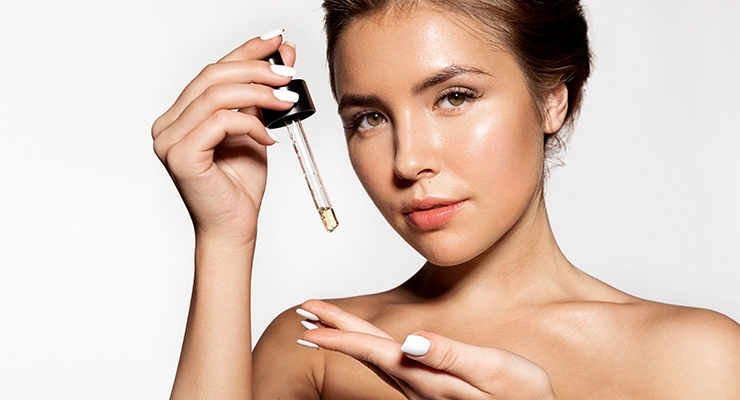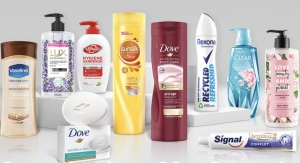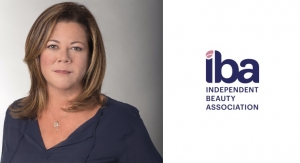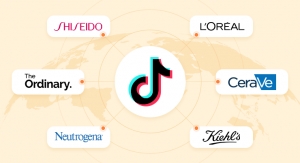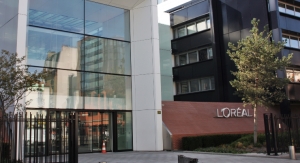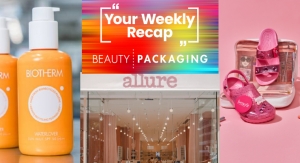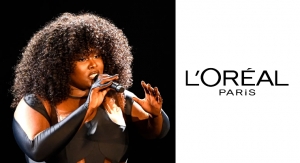03.08.19
L’Oréal has announced a partnership between its Technology Incubator and Silicon Valley-based uBiome, the leader in microbial genomics, to continue its longtime research into skin microbiome—the trillions of bacteria that live on, and provide an important barrier to, your skin. The partnership was introduced at L'Oréal's “Know Your Skin” exhibit at SXSW in The Fast Company Grill in Austin, Texas.
This collaboration bridges L'Oréal's expertise in the science of skincare with uBiome’s leadership in microbiome research. Through this partnership, the two companies intend to conduct new research on the skin’s bacterial ecosystem, with a goal of offering deeper skin insights to uBiome’s global community while informing future product development at L'Oréal.
“When it comes to skincare, people often audition product after product to determine what works for their unique skin. At L’Oréal, our goal is to advance scientific research and leverage new technologies to change this relationship, by allowing deeper levels of personalization,” said Guive Balooch, vice president of L’Oréal’s Technology Incubator, an arm of L’Oréal’s Research & Innovation Division. “The microbiome has major implications for skin’s overall appearance and health. With the global reach of uBiome’s community of citizen scientists, our two companies will be able to extend our respective research in this space, and better understand the interplay between bacterial diversity and skin health.”
The microbiome is an ecosystem of trillions of microbes living in and on our bodies. It consists of bacteria, viruses, fungi, and other microorganisms that can be beneficial to human health. Each unique area of the body has its own microbiome. The human skin, our body’s largest organ, is home to roughly 1,000 species of bacteria. The microbial balance affects skin health and appearance; imbalance can contribute to skin concerns including acne, eczema, rosacea, and psoriasis. Additionally, skin microbiome can regulate body odor and change with aging.
"So many clues about our overall health come from the amazing world of microorganisms,” said Jessica Richman, co-founder and CEO of uBiome. “L’Oréal is an ideal partner for uBiome as it has had a strong focus in scientific innovation in this space for years. Their expertise, combined with uBiome's advanced understanding of the skin microbiome will allow us to pave the way for the future of personalized skin care.”
L’Oréal began exploring the skin microbiome over a decade ago and has published 50 papers on the subject since 2006. L'Oréal's findings include the link between microbiome, skin barrier function, and immune responses as well as the evolution of the microbiome on aging skin. This collective research has contributed to the launch of several skincare products across L'Oréal's Active Cosmetics Division—including the brands La Roche-Posay and Vichy—since 2013.
This collaboration bridges L'Oréal's expertise in the science of skincare with uBiome’s leadership in microbiome research. Through this partnership, the two companies intend to conduct new research on the skin’s bacterial ecosystem, with a goal of offering deeper skin insights to uBiome’s global community while informing future product development at L'Oréal.
“When it comes to skincare, people often audition product after product to determine what works for their unique skin. At L’Oréal, our goal is to advance scientific research and leverage new technologies to change this relationship, by allowing deeper levels of personalization,” said Guive Balooch, vice president of L’Oréal’s Technology Incubator, an arm of L’Oréal’s Research & Innovation Division. “The microbiome has major implications for skin’s overall appearance and health. With the global reach of uBiome’s community of citizen scientists, our two companies will be able to extend our respective research in this space, and better understand the interplay between bacterial diversity and skin health.”
The microbiome is an ecosystem of trillions of microbes living in and on our bodies. It consists of bacteria, viruses, fungi, and other microorganisms that can be beneficial to human health. Each unique area of the body has its own microbiome. The human skin, our body’s largest organ, is home to roughly 1,000 species of bacteria. The microbial balance affects skin health and appearance; imbalance can contribute to skin concerns including acne, eczema, rosacea, and psoriasis. Additionally, skin microbiome can regulate body odor and change with aging.
"So many clues about our overall health come from the amazing world of microorganisms,” said Jessica Richman, co-founder and CEO of uBiome. “L’Oréal is an ideal partner for uBiome as it has had a strong focus in scientific innovation in this space for years. Their expertise, combined with uBiome's advanced understanding of the skin microbiome will allow us to pave the way for the future of personalized skin care.”
L’Oréal began exploring the skin microbiome over a decade ago and has published 50 papers on the subject since 2006. L'Oréal's findings include the link between microbiome, skin barrier function, and immune responses as well as the evolution of the microbiome on aging skin. This collective research has contributed to the launch of several skincare products across L'Oréal's Active Cosmetics Division—including the brands La Roche-Posay and Vichy—since 2013.

